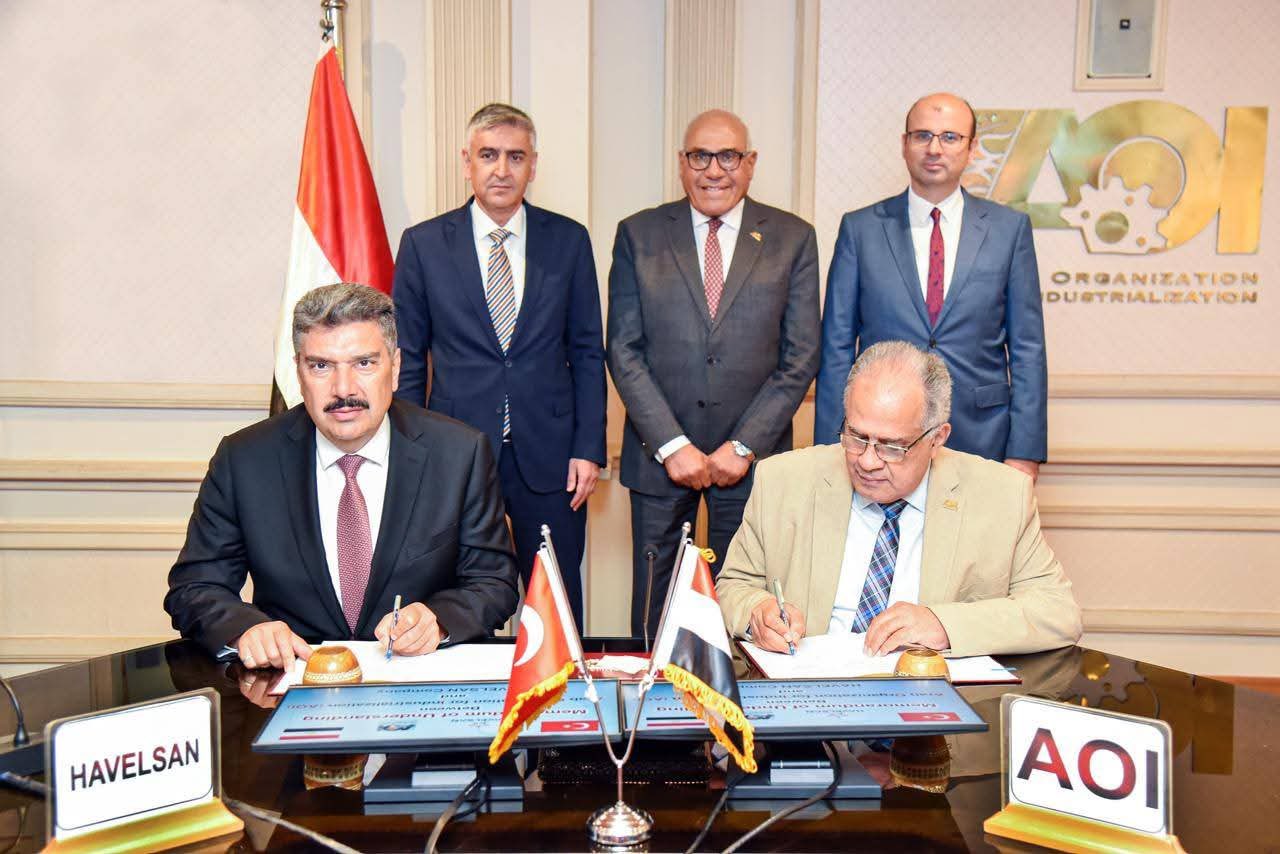On August 27, 2025, an agreement was signed in Cairo between Türkiye’s defense technology company Havelsan and Egypt’s Arab Organization for Industrialization (AOI) for the joint production of vertical takeoff and landing unmanned aerial vehicles (VTOL-UAVs), as reported by Havelsan. The deal, announced by Türkiye’s Ambassador to Egypt, is regarded as an important step in bilateral defense cooperation, with potential strategic implications for the African defense market. It reflects both nations’ ambitions to expand their industrial capabilities while addressing a growing regional demand for cost-effective unmanned systems.
The cooperation focuses on the joint production of Havelsan’s sub-cloud UAV family, which includes the BAHA, BULUT, and BOZBEY platforms. These systems have been developed to provide tactical reconnaissance and surveillance capabilities at low altitudes, where their vertical takeoff and landing design enables operations without the need for runways. Their development reflects Türkiye’s broader investment in unmanned systems, with Havelsan positioning itself as an actor in autonomous technologies, command-and-control solutions, and defense simulation. By introducing these UAVs into joint production, the initiative highlights the growing importance of sub-cloud unmanned systems for security missions and localized defense requirements.
The BAHA drone is a compact vertical takeoff and landing (VTOL) platform designed for reconnaissance and surveillance missions, able to operate without the need for a runway. It has been equipped with electro-optical and infrared sensors and is already in service with the Turkish Armed Forces, where it has been used for border security and tactical intelligence tasks. The BULUT UAV, larger than BAHA, offers an endurance of up to six hours and a payload capacity of around 5 kg. It integrates EO/IR/LRF sensors, can operate in GNSS-denied environments, and has anti-jamming features, making it suitable for persistent intelligence, surveillance and reconnaissance missions. The BOZBEY system, which has undergone testing for operations from naval platforms such as frigates and unmanned surface vessels, brings VTOL capability to maritime environments and has been showcased internationally, including in cooperation with Malaysia. Together, these drones demonstrate Havelsan’s approach to developing complementary unmanned aerial platforms with varying endurance and payload capacities, enabling different mission profiles and highlighting Türkiye’s growing investment in UAV technologies.
From a strategic standpoint, the partnership extends beyond technical cooperation. For Egypt, it represents an important step toward achieving greater autonomy in defense technology while positioning Cairo as a manufacturing hub for unmanned aerial systems in Africa. For Türkiye, the agreement secures a strong entry into a market where demand for UAVs is rapidly growing, driven by regional security challenges and counterinsurgency operations. This collaboration also strengthens the political rapprochement between Ankara and Cairo, linking defense cooperation to broader geopolitical and economic relations.
Budgetary considerations remain crucial for the success of the program. Havelsan has previously secured export contracts in the unmanned systems domain, though the Cairo deal marks the first large-scale framework for UAV co-production in Africa. While no financial details were disclosed, the arrangement is structured to provide cost-effective, performance-driven solutions tailored to the African market. The recent confirmation of unmanned ground vehicle production between Havelsan and Egypt’s Kader Factory further demonstrates the multi-domain scope of cooperation, indicating a layered approach to defense industrial integration.
This agreement signals more than a defense contract; it is a move that positions Türkiye and Egypt as co-developers in the fast-growing UAV sector, creating opportunities for technological independence and long-term industrial partnerships. As regional defense markets evolve, the Havelsan–AOI initiative could redefine the competitive landscape of unmanned systems across Africa, ensuring both affordability and operational relevance for states seeking to modernize their capabilities.
